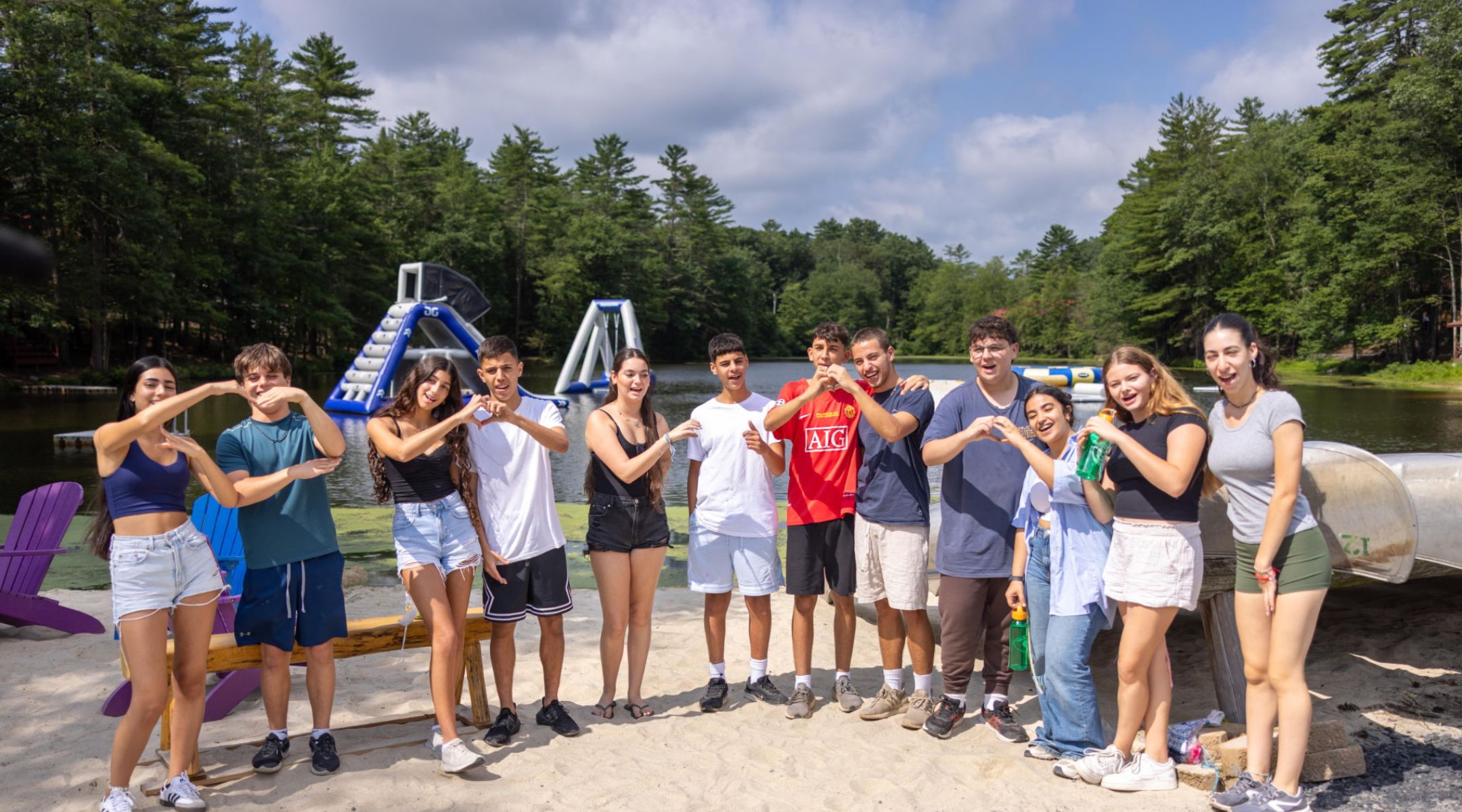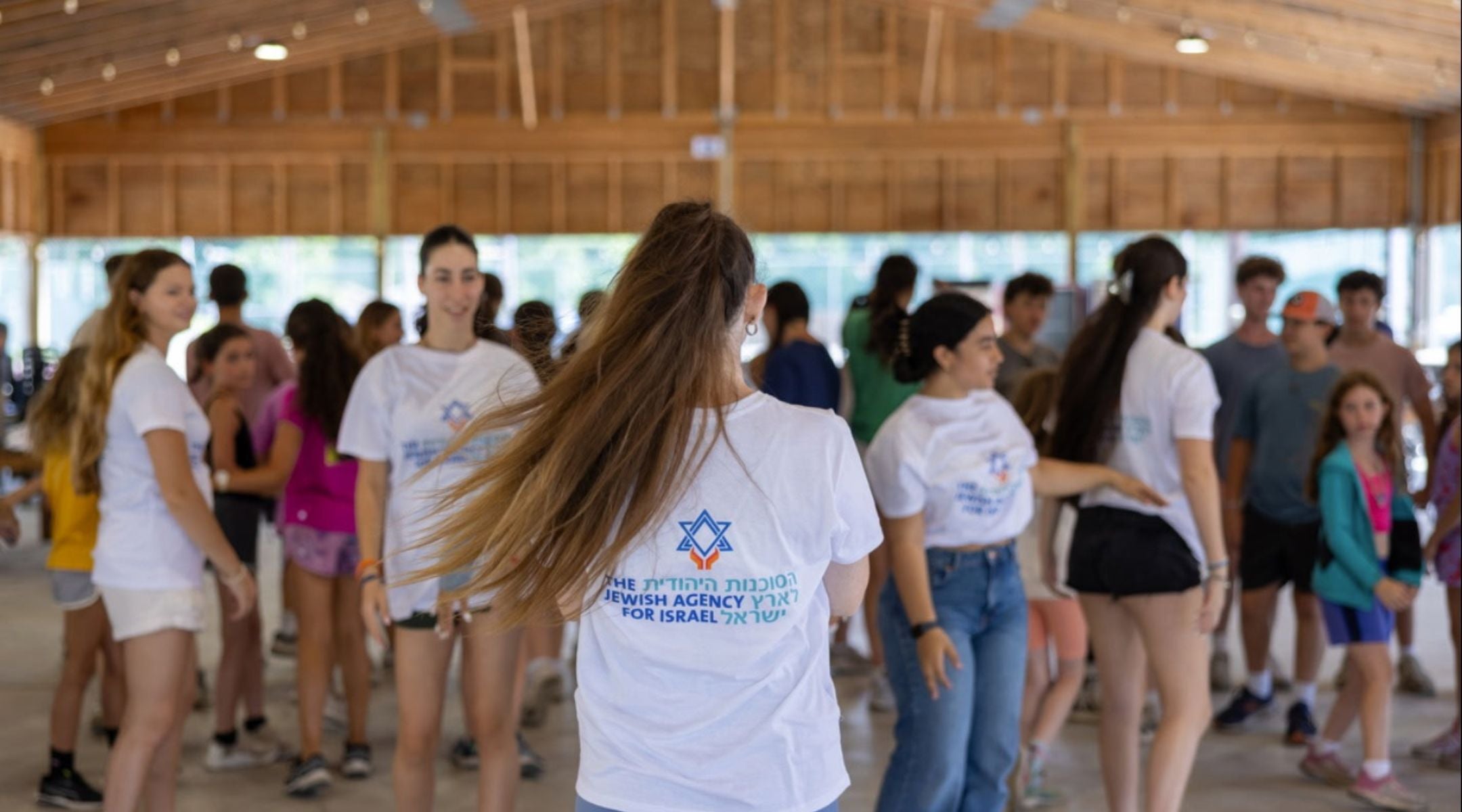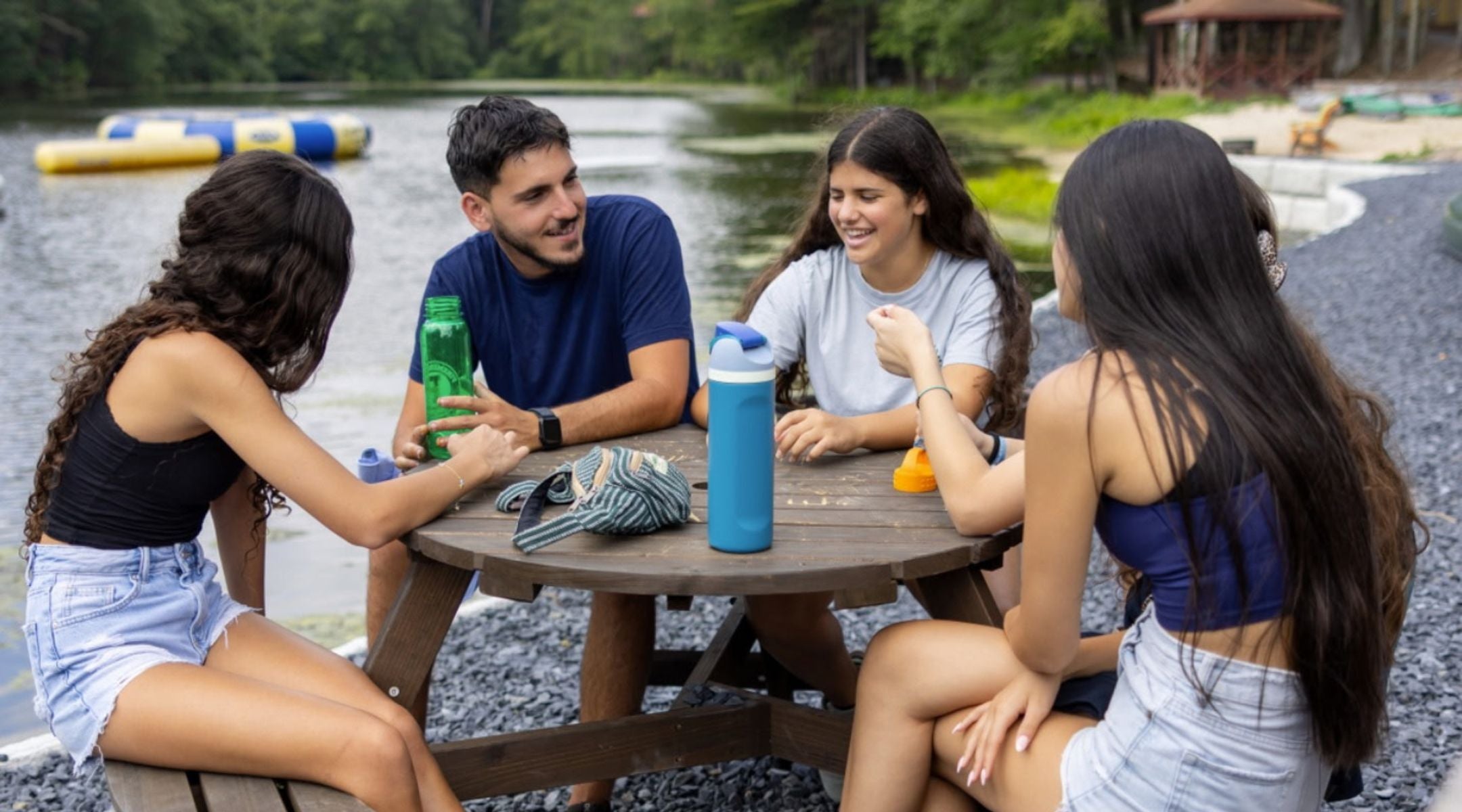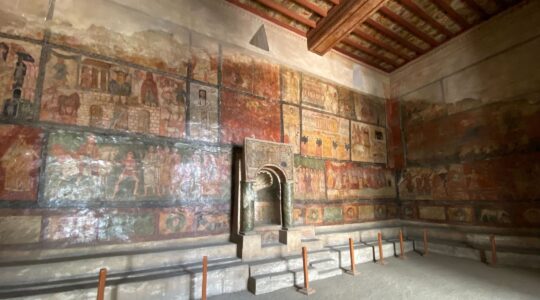This article was produced as part of JTA’s Teen Journalism Fellowship, a program that works with Jewish teens around the world to report on issues that affect their lives.
When Guy, a 15-year-old Israeli, arrived at Camp Ramah, a Conservative movement camp in Ojai, California, in July, it didn’t take him long to pick up on California’s chill vibes.
“The first thing I saw was the amazing scenery of Southern California—the mountains, the forests, all the wild animals,” Guy said. “I felt calm. Everything died down.”
For Guy, that sense of calm was deeply needed. In the wake of Hamas’ invasion of Israel on Oct. 7, 2023, Guy was evacuated from his home in Eshkol, a region bordering Gaza, where multiple Oct. 7 attacks occurred. He lived in a hotel, then moved to a place next to Tel Aviv, before returning home after nearly a year and a half.
Guy is one of 770 Israeli teens who attended American Jewish summer camps in 2025 through Campers2Gether, a Jewish Agency for Israel program aiming to provide Israeli teens with a respite from the war. (The teens’ last names were omitted to protect their privacy in accordance with the Jewish Agency for Israel’s security policy.)
Established in 2024, the program brings rising ninth and tenth graders from the Gaza envelope area to 35 summer camps in North America. Camp Ramah in California hosted a delegation of 20 teens from Eshkol.
Campers2Gether enables cross-cultural connection between Israeli and American Jewish teens—a rare opportunity amidst decreased travel to Israel due to regional conflict. The camp provided the Israelis a window into Conservative American Jewish practice.
Ella, a camper from the Eshkol delegation, was raised in a masorti, or traditional, community. She appreciated the camp’s inclusion of girls in religious practices.
“I liked it because the Americans were treating girls putting on tefillin like it’s normal,” said Ella, 14. “I’m not used to it, but when I saw everyone react to it in that way, then I was like, of course it’s good that girls are putting on tefillin.”
“It was the first time I saw girls singing the Torah,” said Guy, who was raised in a secular community. “It was very nice and pleasant.”
The Jewish Agency originally intended for Campers2Gether to be a one-time program to support teens in the immediate aftermath of Oct. 7. After witnessing its reciprocal impact, however, Chief Impact Officer Dr. Shelley Kedar established Campers2Gether as an annual program.
The second year of the program brought new challenges as the Jewish Agency worked to address Israelis’ mental health needs.

Camp Pinemere in Pennsylvania is one of the hosts of Campers2Gether, program bringing Israeli teens impacted by Oct. 7 to Jewish summer camps. (Jennifer Roman for The Jewish Agency)
“Last summer, a lot of teens were holding it together for their parents, and now that they’re moving back home, that level of commitment for them to hold themselves together for their parents is not as much needed,” Kedar said. “The teens are very resilient, but this war is taking its toll on young people.”
To support the Israeli participants, the Jewish Agency built in time each day for processing and Hebrew-speaking with their madrichim, educators who accompany the teens.
“In the beginning, it was hard because it was very far away from my family,” Guy said. “The mental health [services] helped me a lot, and it was fun to talk with the Israeli crew members.”
The camp implemented a no-phones policy, providing a break from news in Israel that Ella welcomed.
“If our phone was next to us, I would know everything,” Ella said. “It felt like we were not in the world; it felt like we were in this space. It’s what made me calm.”
American teens like Mara from Denver, Colorado initially found it challenging to communicate with their Israeli guests across the language barrier.
“They would be like, ‘Hi, how are you?’ and then it would be hard to continue the conversation,” said Mara, 15.
Camp activities, however, helped facilitate connection.
“At Shabbat, they were all really trying to get into it, and so we just danced with them and sang the songs,” Mara said. “It was easier to bond over that because you didn’t need to use conversation skills.”
Max, a camper from Los Angeles, California, grew closer to the Israeli teens through unstructured interaction outside of the camp schedule.
“We started getting closer because we lived in different tents but right next to each other,” said Max, 16. “I started to bond and talk and ignore the outside world, which is a big part of what camp is. You’re here, you’re present in the moment. We would be sitting down at night, just talking, hanging out. Once they got more comfortable with us, I felt that I could open up to them, and they opened up to me.
Nine days into the Israeli teens’ stay, the staff facilitated circles of conversation for the Israelis to share their experiences on Oct. 7 with the Americans. Chief Experience Officer and Camp Director Ariella Moss Peterseil views these dialogues as moments to humanize Israeli experiences.
“This meeting opportunity breaks it down from social media and news into relationships and people,” Moss Peterseil said.
Guy felt it was important for him to share his first-hand perspective with the American teens.
“They knew all the dry things like what happened, how much, when, where—but the feelings of someone who really experienced it themselves, I think that’s what we could share with them and teach them,” Guy said.
Jack, a 15-year-old camper from Los Angeles, California, singled out the Oct. 7 conversation as a particularly impactful moment for him.
“The Israeli teens had been acting like Oct. 7 never happened,” Jack said. “Then they spoke on one of the worst things that happened to the Jews and how they witnessed it firsthand. They just did a 180 on me and opened up. I was really in shock. One of the kids knew a hostage—it got real.”

The Jewish Agency partners with North American camps and Jewish federations to provide Israeli teens with a respite from the war. (Jennifer Roman for The Jewish Agency)
Ella appreciated the Americans’ efforts to empathize with her.
“The Americans can’t quite understand what life has been like now, but they’ve really tried to understand us, to get a sense of what things are like,” Ella said. “All the things that the Americans were scared to ask, they asked. It’s made us feel more like friends and freer.”
“It was a little bit relaxing that I know now that they also know the story,” Guy said. “It was like therapy.”
For Mara, hearing directly from Israeli teens deepened her personal connection to a war she had previously only read about.
“Oct. 7 was a little while ago, and I think it just becomes more distant the less you read about it,” Mara said. “Having the Israelis here brings the war closer to home, and it makes you realize again and again, this needs to stop.”
In addition to sharing their own stories, the Israeli teens listened to those of the Americans. Ella learned about American Jewish teens’ experiences amidst the recent spike in antisemitism.
“When they’re wearing a Star of David necklace, some of them have to hide it,” Ella said. “I was surprised at that because I would never think I would have to hide my identity.”
After returning home, Guy feels more mature because of his camp experience.
“It made me more independent, like when I needed to get ready for things,” Guy said. “Before the camp, it was very hard for me, and I needed help from my parents. In the camp, I didn’t have this, so I needed to learn how to do it myself.”
Moss Peterseil hopes that the Israeli teens’ experiences will leave a lasting mark on their ideological views back in Israel.
“The more Israeli kids are exposed to pluralist Jewish North America, it strengthens Israel, because even as 14-year-olds, they have their minds blown a little bit,” Moss Peterseil said.
Max values the friendships he has forged with the Israeli teens, which he believes will endure beyond the camp.
“At this moment, sometimes you can feel that the Jewish people are divided between the American people and the Israelis,” Max said. “Having these cross-cultural connections, having the Israeli teens come here, hanging out with us, creating actual bonds—that is making the Jewish people one people. I’m going to talk to them after camp, 100%.”
JTA has documented Jewish history in real-time for over a century. Keep our journalism strong by joining us in supporting independent, award-winning reporting.





